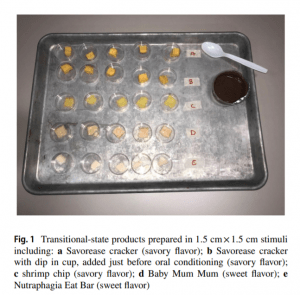Transitional foods are under-utilized in the adult population as they may provide an opportunity to optimize eating pleasure and nutrition for individuals on a modifed texture diet. Yet, little is known about the behavioral properties of transitional foods and no research to date has explored the dissolution of known transitional foods in adults. This study aimed to understand the extent of dissolution of five transitional snacks items in relationship to time, tongue pressure, and amount of saliva.
Click here to find out more


